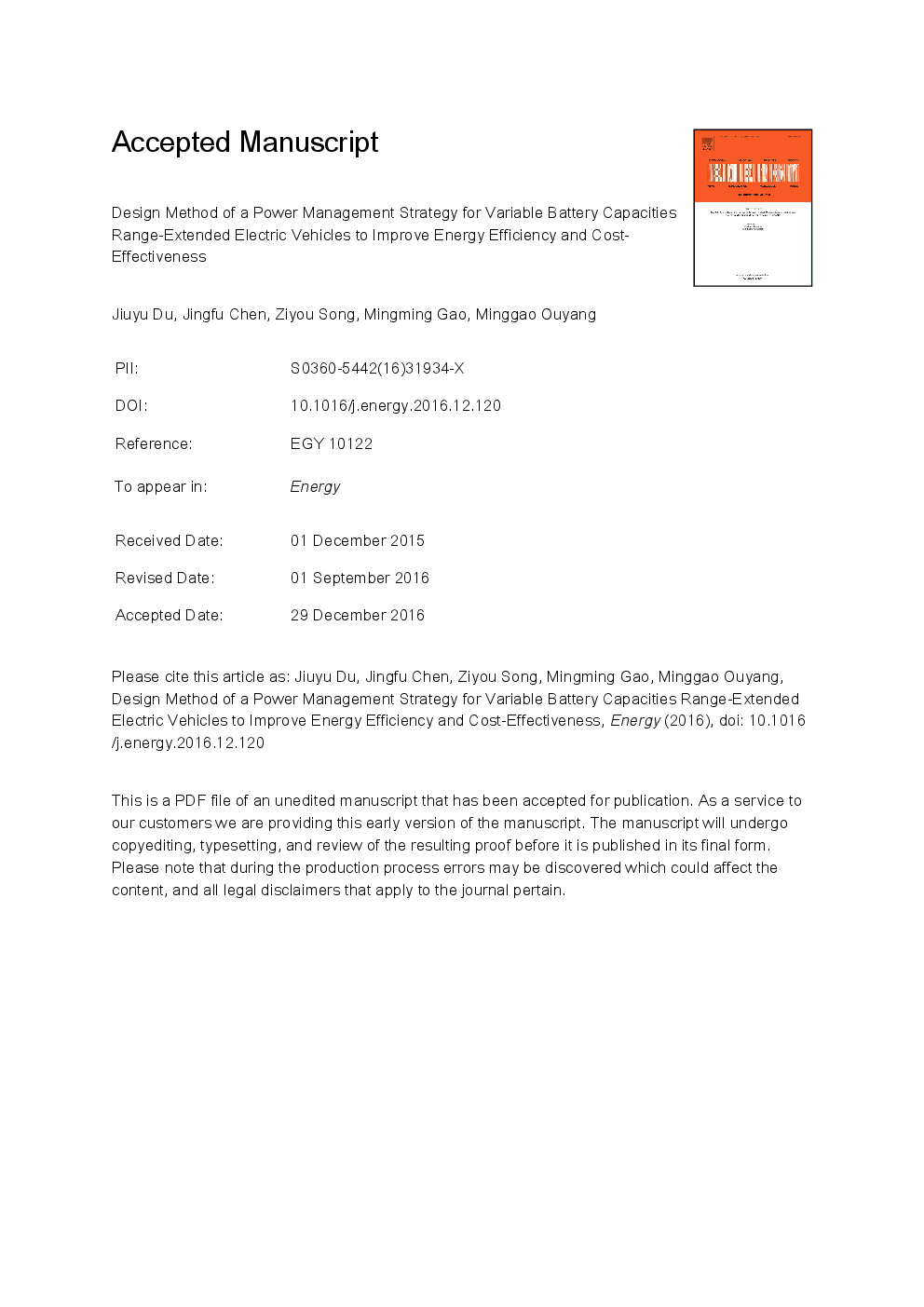ترجمه فارسی عنوان مقاله
روش طراحی یک استراتژی مدیریت قدرت برای ظرفیت متغیر باطری محدوده وسیله نقلیه الکتریکی برای بهبود بهره وری انرژی و هزینه-بهره وری
عنوان انگلیسی
Design method of a power management strategy for variable battery capacities range-extended electric vehicles to improve energy efficiency and cost-effectiveness
| کد مقاله | سال انتشار | تعداد صفحات مقاله انگلیسی |
|---|---|---|
| 100221 | 2017 | 29 صفحه PDF |
منبع

Publisher : Elsevier - Science Direct (الزویر - ساینس دایرکت)
Journal : Energy, Volume 121, 15 February 2017, Pages 32-42
ترجمه کلمات کلیدی
وسیله نقلیه الکتریکی محدوده وسیع، استراتژی کنترل بهینه، بهره وری انرژی، ظرفیت باتری متغیر، نسبت تقسیم قدرت، مصرف سوخت،
کلمات کلیدی انگلیسی
Range-extended electric vehicle; Optimal control strategy; Energy efficiency; Variable battery capacities; Power split ratio; Fuel consumption;

